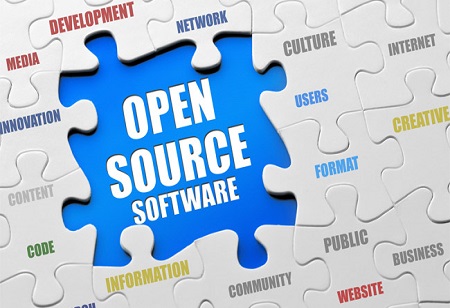
MeitY thinks over Tech Repository for Digital services using open source software

 Ministry of Electronics and Information Technology’s (MeitY) is looking to find customer relationship management (CRM) and enterprise resource planning (ERP) solutions based on Free and open-source software (FOSS) that it could organize on its own platforms and use it in the future to develop other citizen-facing interfaces similar to an Aarogya Setu app or a COWIN platform.
Ministry of Electronics and Information Technology’s (MeitY) is looking to find customer relationship management (CRM) and enterprise resource planning (ERP) solutions based on Free and open-source software (FOSS) that it could organize on its own platforms and use it in the future to develop other citizen-facing interfaces similar to an Aarogya Setu app or a COWIN platform.
The goal is to create an open-source software repository that could be accessed and used across departments, States and countries. Presently, the government is working on using FOSS to find solutions in agritech, healthcare, governance and education sectors.
Towards this, MeitY had proclaimed #FOSS4Gov Innovation Challenge for which it has received 1,400 registrations across the country including tier-II and tier-III cities.
The winning teams will not only work with the government on its various population-scale platforms but also get cash prizes of up to Rs.90 lakh to develop their solution.
Three winners will be selected in CRM and ERP categories separately. The first prize will be Rs 20 lakh, the second prize of Rs 15 lakh and the third prize will be Rs 10 lakh.
Abhishek Singh, CEO, National eGovernance Division (NeGD) said, “The aim of #FOSS4Gov Innovation Challenge is to create awareness and promote FOSS and to also identify solutions that could be used by the government.We want to give the FOSS community an opportunity to build their own solutions especially in the CRM and ERP space which can be adopted by the government. This is the first step to build a FOSS-based govtech stack, and the repository will be available across departments, States and countries.”
“We have got good response and a lot of entries and hopefully we’ll find a few solutions which will become a part of government’s FOSS repository.” he added.
Singh said that a key challenge to solve will be to make government online portals smoother enabling citizens to easily interact with the government.
MeitY is partnering with investment company Omidyar Network India (ONI) to mentor the shortlisted teams for the programme. ONI will also be separately awarding a special prize to the team developing and integrating citizen-centric safeguard in their apps which will protect citizen’s data.
“When MeitY was considering this, we thought we could contribute in two ways. We could help the shortlisted innovator with leading FOSS and domain experts who will guide and mentor them before they present their final ideas. The other aspect is, in addition to what the MeitY is doing with the prizes, we are giving a prize specifically for citizen-centric safeguards as in if there is a feature in the app which is particularly helpful in protecting the citizen’s data, we will award that,” Varad Pande, Partner, Omidyar Network India said.
Why FOSS?
While the government is known to work with legacy IT majors to set up its various platform deploying their proprietary software, the trend is slowly shifting. Since 2016, the government is using FOSS to develop several digital services consisting of DigiLocker, Aarogya Setu, UPI, Aadhaar to name a few.
Singh stated, “Developing solutions over FOSS brings in collaborative efforts of several minds while a proprietary software a fixed number of engineers from the company are working on it. There is no vendor locking. You don’t need to work with the same software forever. Whenever you are working with software companies on a digital service, every project is implemented with a finite contract of three-or-five years. Post that you have to pay more money and go for a single source of procurement.”
“In FOSS, there’s always a community of developers who are willing to engage with you and help you. The overall cost of ownership is also lower for the government. And when it is available for replication, others don’t have to build the solution from scratch.” Singh added.
“In addition to cost and vendor lock-in issues, FOSS enable greater accountability and transparency. Apps like Aarogya Setu and COWIN were built on FOSS, and when the code was shared with the broader community, a number of people came back reporting bugs and other issues, which the government incorporated. It increases engagement with the community.” Pande said.